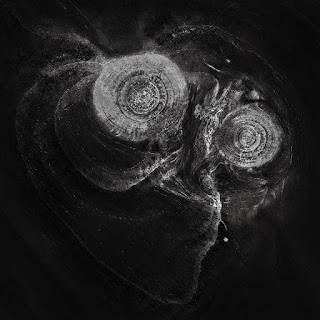
"Rotating systems often break axisymmetry; were it not so, there would be no hurricanes. There are steadier examples: the skirts of the 'whirling dervish' carry cusped wave patterns which seem to defy gravity and common sense.
...
We consider a rotating, conically symmetric surface made out of a sheet of material that is constrained not to stretch or compress in two dimensions, but is perfectly flexible with respect to bending in the third. The symmetry of the surface permits an additional material flow to be superimposed on the rotation of the surface, leading to Coriolis forces. The equations describing this system yield a three-parameter family of exact solutions, some of which bear a close resemblance to the patterns on a dervish's skirt. We find that the Coriolis terms that arise from the additional flow are crucial for these types of patterns to exist.
...
The results widen our understanding of the dynamics of flexible objects and of pattern formation in rotating systems. They may also shed some light on previously known instabilities of turbine disks and hard disks. Finally, they bring a bit of science into the otherwise nebulous world of the mystic, and address a phenomenon that has been observed with aesthetic pleasure for hundreds of years."
- J. Guven, J. Hanna and M. Müller,
"Whirling skirts and rotating cones,"
New Journal Of Physics (Nov, 2013)
Postscript. The images in the diptych that I took with my iPhone recently (of light reflecting off of cars parked onto the walls of a local garage) reminded me of Rumi's "Whirling Dervishes," about which you can read here and here (in considerably less technical detail than the one you'll find if you follow the link to the physics journal!)
“You are water, whirling water,
Yet still water trapped within,
Come, submerge yourself within us,
We who are the flowing stream.
...
We came whirling out of nothingness,
scattering stars like dust...
The stars made a circle,
and in the middle,
we dance.”
- Rumi (1207 - 1273













































